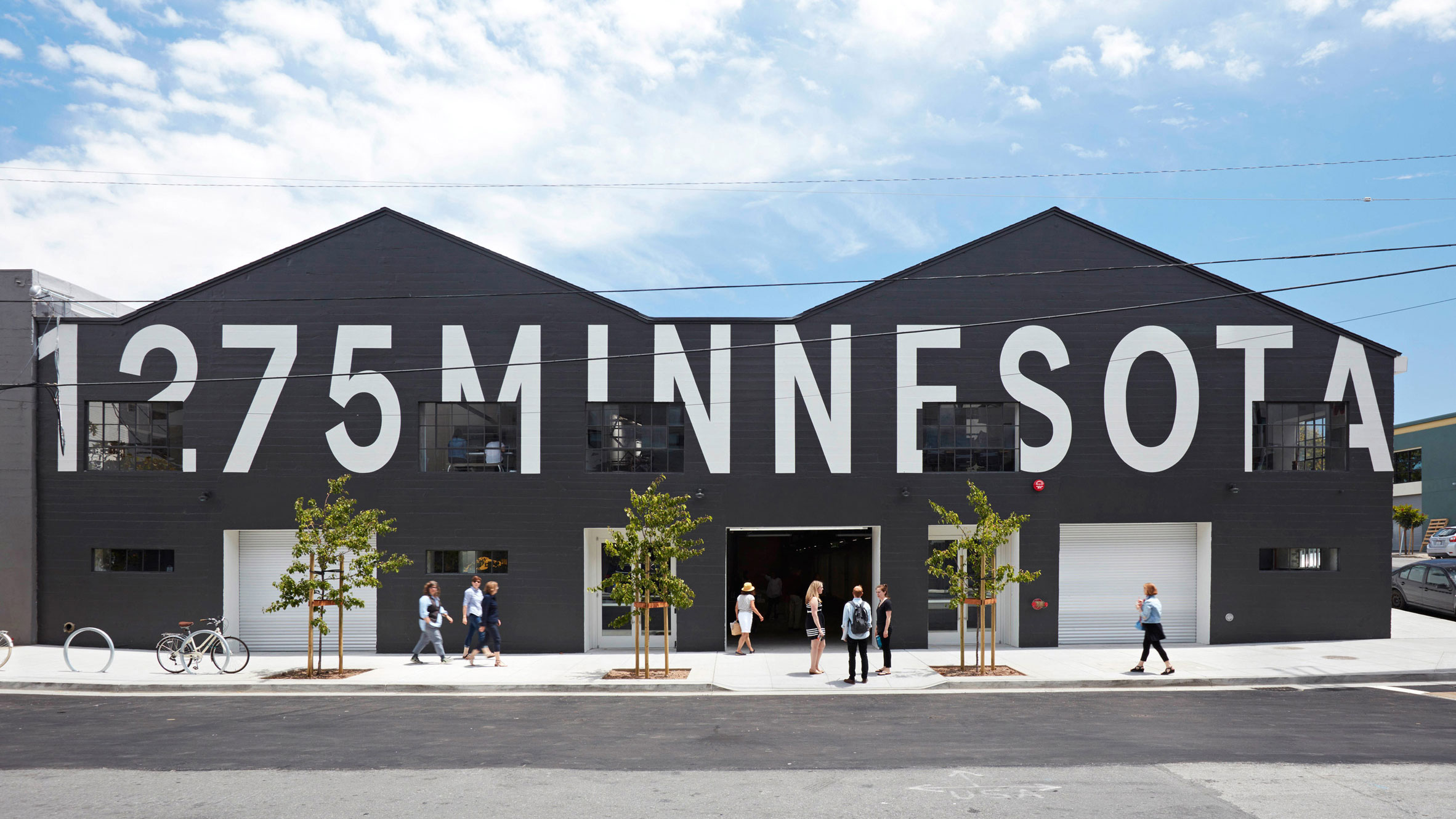
Jensen Architects converts San Francisco warehouse into arts centre with black and white facade
Named after its address, 1275 Minnesota Street entailed the adaptive reuse of an industrial building dating to 1937.
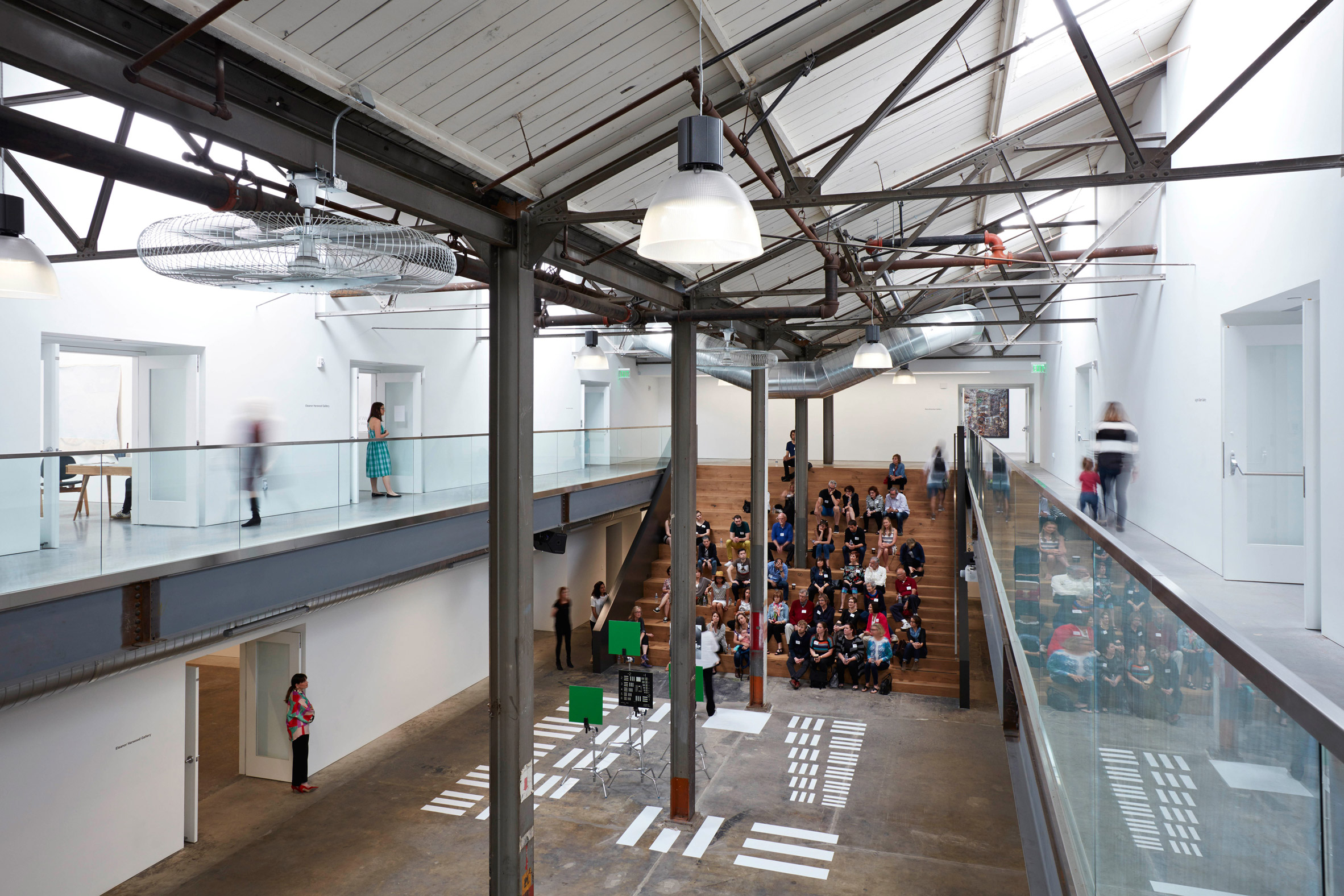
The facility is part of a larger complex called the Minnesota Street Project, which offers affordable rental space for artists, galleries and cultural nonprofit groups.
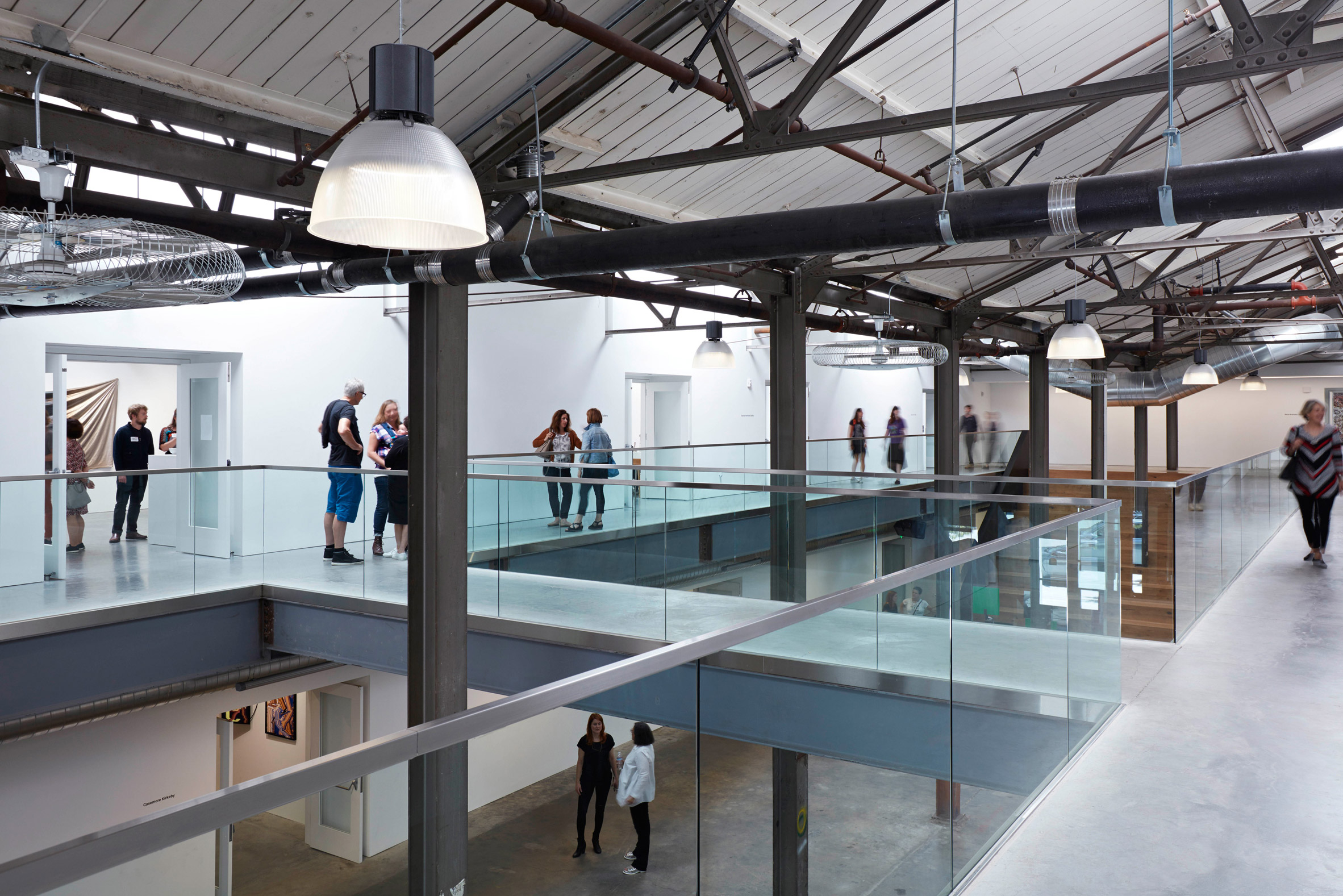
"Minnesota Street Project was inspired by the couple's belief that philanthropic support for the arts today requires an alternate model – one suited to the innovative nature of Silicon Valley and the region as a whole," said Jensen Architects, a San Francisco-based studio.
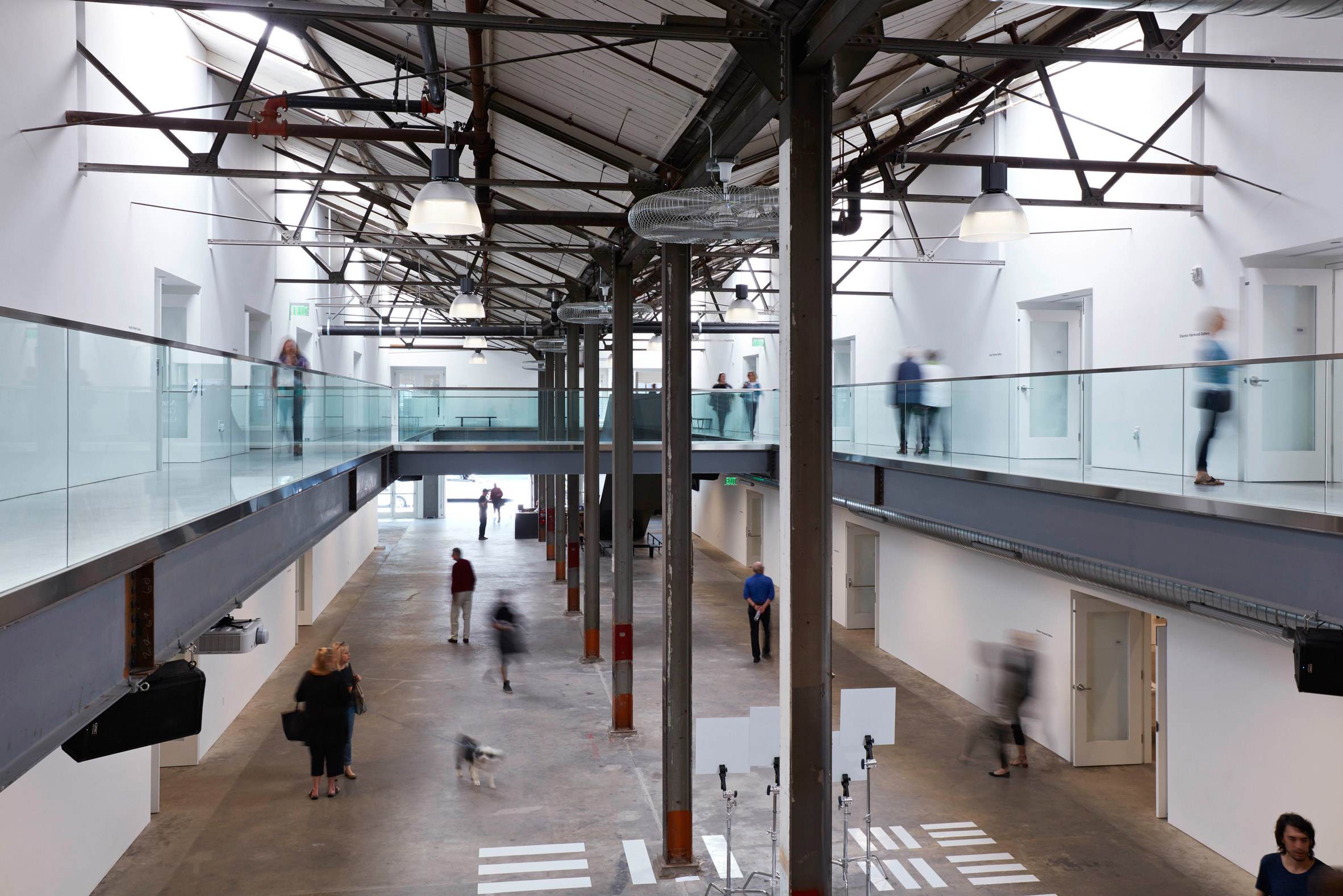
The concrete exterior was painted white and black. The relatively quiet facade is enlivened by giant letters that depict the building's address.
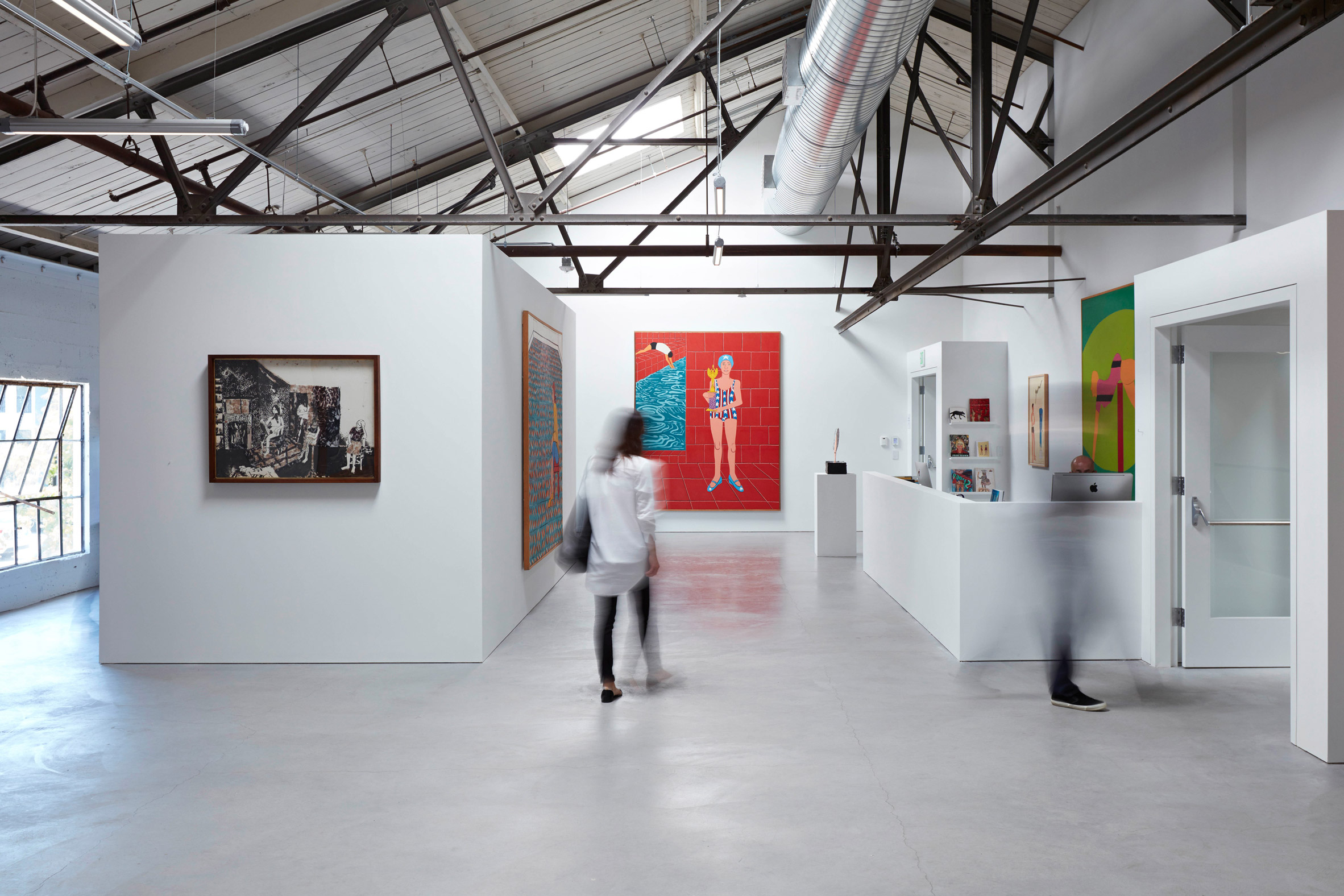
Rectilinear in plan, the building has a series of galleries organised around a central, double-height atrium. A glass-walled bridge traverses the space, providing an elevated view of the facility.
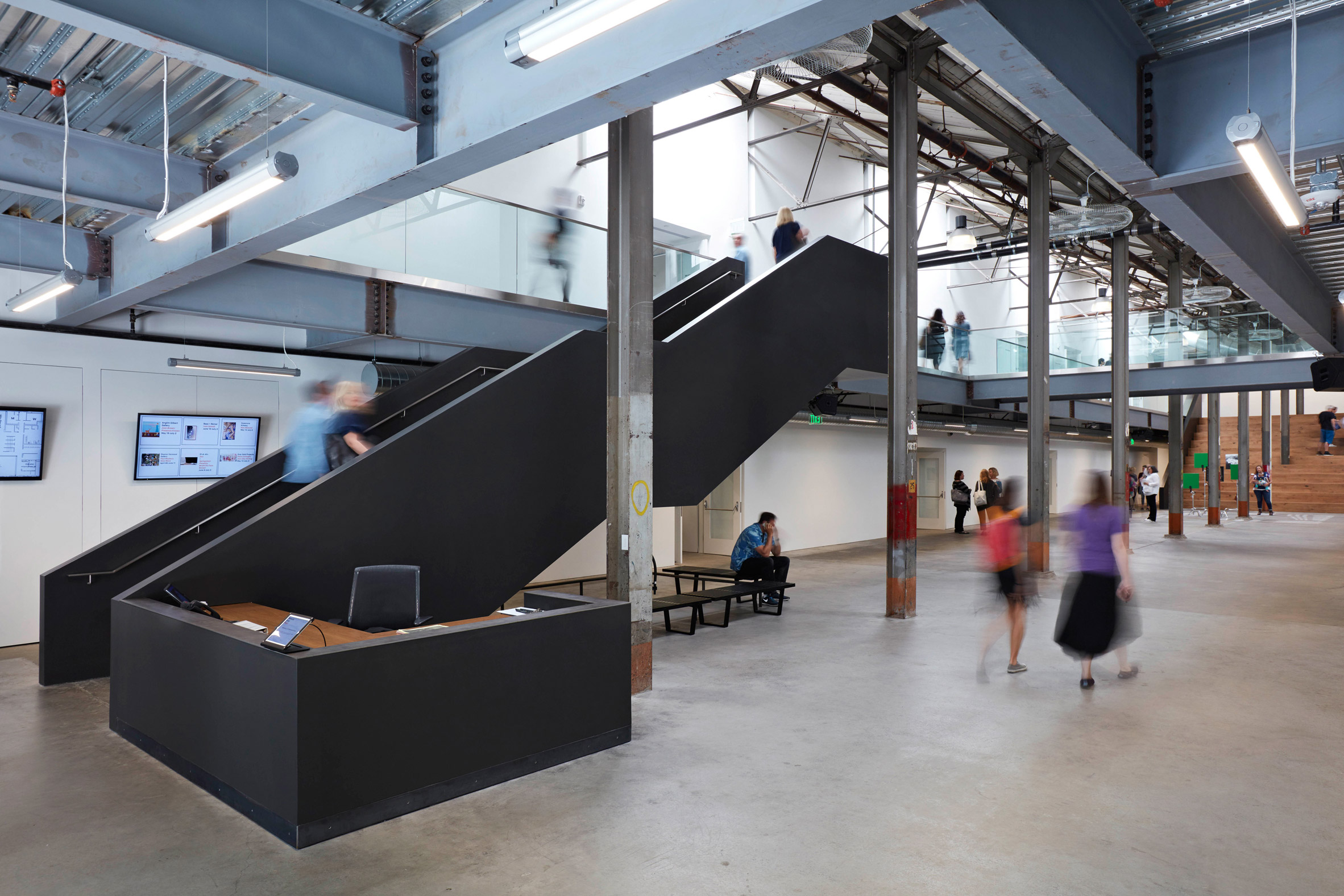
Tall, steel columns running down the centre of the atrium were left exposed. Concrete flooring and exposed ductwork further contribute to the industrial aesthetic and hint at the building's past.

Other recent projects in San Francisco include a "boutique" co-working space by Yves Behar and an expansion to the San Francisco Museum of Modern Art by Snøhetta.
Photography is by Mariko Reed.
No comments:
Post a Comment